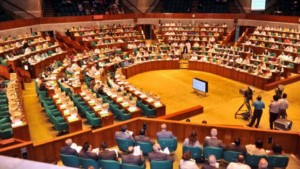By Bertrand Piccard
LAUSANNE – The COVID-19 crisis is far from over. Yet, even as people continue to transmit the coronavirus and the death toll mounts remorselessly, pressure for a return to normal is already growing in some quarters. The immediate question is what normal even means. After all, the global economy was built on a fragile, unsustainable, and unequal basis and could hardly be called normal. A tenuous political, ecological, and socioeconomic system that was already existentially threatened by climate change has now been brought low by a microscopic nemesis. Is that really the type of society we want to see emerge from this crisis?
Imagine, instead, that the COVID-19 crisis does pave the way to a new world. What might it look like? Commentaries and analyses proposing what should come next are everywhere. But simply calling for change won’t make it happen. That is why the Solar Impulse Foundation and its corporate partners are committing to implementing concrete solutions ourselves.
All told, the Foundation’s partners account for more than one million jobs worldwide, as well as a considerable share of the global economy. We produce everything from critical health-care equipment to basic and luxury goods and raw materials. We manage financial products, build new infrastructure, and provide clean energy. Our activities help people to feed and clothe themselves and their families, stay warm, travel, and pursue the lives they want to lead.
As major economic and industrial players, we are fully aware of our role in society, and we will do everything we can to build a better post-pandemic world – cleaner, fairer, more sustainable, more efficient, and more respectful of biodiversity and the climate. Though the COVID-19 crisis is hitting us as hard as anyone else, we remain committed to meeting our emissions-reduction targets and ushering in a circular economy, by promoting sustainable and affordable food, renewable energies, and fair-trade products.

We will do this with clean technologies whose development the Solar Impulse Foundation has been supporting through its 1000 Solutions Challenge for several years now. Regardless of what sector one operates in – from water, energy, and infrastructure to transportation, manufacturing, and agriculture – innovations are emerging to ensure sustainability.
Our commitment is not just to the planet, but also to the economy. Today’s clean technologies are increasingly good for business. They furnish us with less costly renewable energy and more efficient industrial processes. They reduce waste and pollution, and streamline recycling. As assets that are both clean and profitable, they are a key engine of qualitative, rather than merely quantitative, economic growth.
With clean technologies, we can create an entirely new economic system in which consumption is improved even as we consume less. Environmentalists’ interests would no longer be pitted against those of the major industrial players. Instead, we would all be focused on the same goals: to create good jobs, support social welfare, and improve the quality of life on this planet.
In the case of the COVID-19 crisis, some commentators have welcomed the halt to human activities, insofar as this has reduced pollution and greenhouse-gas emissions. But this is no cause for celebration. Millions will suffer through the downturn. The current situation demonstrates precisely how fragile the prevailing economic model has become, and it increases the urgency of creating a system in which economic interests go hand in hand with those of the planet.
Some companies have already begun to use the technologies needed to do this. But adoption must become more widespread, so that clean tech becomes the new normal to which we return when the pandemic threat has passed.
To that end, we are calling on all governments to implement ambitious environmental policies, offering clear strategies and sector-specific targets that will drive the necessary investments. Moreover, we want all legal or legislative frameworks to avoid distortion of competition between market actors who are part of the solution and those who continue to act as if there was no environmental crisis at all.
Though it is a terrible tragedy, the pandemic can serve as an opportunity to rebuild on a new, more sustainable footing. The Solar Impulse Foundation and its partners are committed to doing precisely that, and we urge governments and the rest of the business community to join us.
This commentary is co-authored by the following Solar Impulse Foundation partners: Bernard Arnault, Chairman and CEO, LVMH; Pierre-Etienne Bindschedler, CEO, SOPREMA; Jean-Laurent Bonnafé, Director and CEO, BNP Paribas; Jean-Pierre Clamadieu, Chairman of the Board of Directors, ENGIE; Ilham Kadri, CEO, Chairman of Executive Committee, Solvay; Georges Kern, CEO, Breitling; Florent Menegaux, Chief Executive Officer, Michelin and President, Movin’On; Benoît Potier, Chairman and CEO, Air Liquide; Anne Rigail, CEO, Air France; Mark Schneider, CEO, Nestlé; Markus Steilemann, CEO, Covestro; and Jean-Pascal Tricoire, Chairman and CEO, Schneider Electric.
Bertrand Piccard is Chairman of the Solar Impulse Foundation.
Copyright: Project Syndicate, 2020.
www.project-syndicate.org




